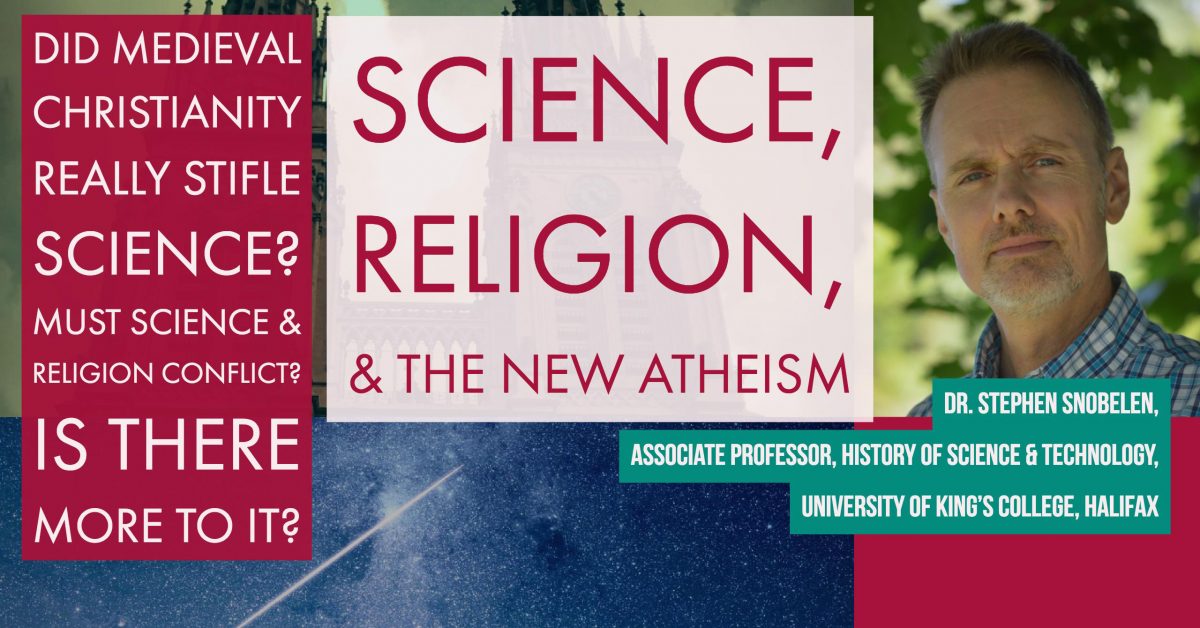FREE PUBLIC EVENT: The CSCA presents a lecture by Dr. Stephen Snobelen, Associate Professor of the History of Science and Technology Programme at University of King’s College, Halifax.
Find more events in Edmonton, AB
Note!
The room has changed to L116 at King’s U.
“Science, Religion and the New Atheism”
From Richard Dawkins’ The God Delusion (2006) to Jerry Coyne’s Faith vs. Fact (2015), the “New Atheists” have both championed a secular view of science and have critiqued, challenged and mocked religion. Yet when their arguments are subjected to the same kind of withering critique they apply to religion, many of them are shown to be a good deal less robust than their proponents claim. While the New Atheists are particularly strong when exposing abuses of religion, their understanding of the nature of science is often simplistic and their treatment of theology petty, unbalanced and frequently wrong. What is more, they regularly misunderstand and misuse the history of science. On top of this, their characterization of religion and belief in God as scientific theories is guaranteed at the rhetorical level to make science look superior to religion, but at the cost of viewing religion in a way similar to the fundamentalists they love to loathe. This account provides a critique of the New Atheists by a historian of science that hopes to be valuable for believer and nonbeliever alike.
Dr. Stephen Snobelen is Associate Professor of the History of Science and Technology Programme at the University of King’s College in Halifax. His research and teaching interests include history of science (early modern and nineteenth century), science and religion, science in popular culture, the popularization of science, radical theology in the early modern period, and millenarianism. His primary research efforts are currently devoted to interpreting Isaac Newton’s theological manuscripts and understanding the relationships between Newton’s science and his religion. He received his Ph.D. in the History and Philosophy of Science from the University of Cambridge.
